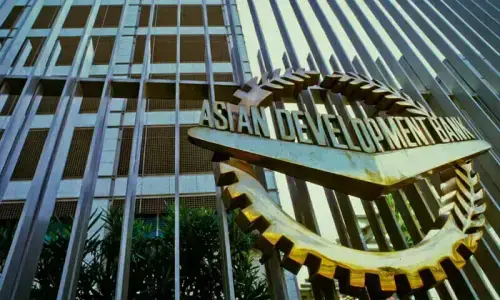ISLAMABAD: Preferring short-cuts to extend a major relief to the elite ahead of the general election, the PPP-led coalition government introduced on Monday the controversial tax amnesty bill in the National Assembly to whiten black money and assets at home and abroad within three months against a nominal one-time charge.
The proposed bill will not only cover non-filers of tax returns but also those who did not figure on the tax roll to whiten income or assets up to Rs5 million and above in a period of three months.
If parliament approves the tax amnesty scheme, even a taxpayer who files returns will also be able to legitimise his undeclared assets or cash of up to Rs5 million by paying just Rs100 to the Federal Board of Revenue.In order to give full protection to such tax dodgers, the bill proposes to exempt tax evaders from all kinds of investigations by tax officials and investigating agencies.
By incentivising tax evasion, experts say these amnesty schemes have discouraged documentation and tax compliance.
However, FBR spokesman Asrar Rauf claimed that it would increase tax compliance in the country.
He said the FBR expected to raise Rs120 billion to Rs150 bn from the amnesty schemes. Tax experts say such schemes in the past have brought paltry sums of revenue to the national exchequer while legalising enormous tax-evaded money.
In 2008, the government had announced a tax amnesty scheme by introducing Section 120-A in the Income Tax Ordinance.
Law Minister Farooq H. Naek, on behalf of the finance minister, introduced the bill in the assembly, which was referred to the Senate Standing Committee on Finance. After approval from the committee, the bill will be sent to the National Assembly’s standing committee for approval. This committee will refer the matter to the house for voting.
The FBR spokesman said the standing committee would take up the bill for discussion shortly and it was expected to be approved before the end of the month.
As per the proposed bill, the schemes allow a tax evader to pay Rs40,000 to legitimise assets worth up to Rs5 million in the first month. Those availing the offer in the second month will have to pay Rs50,000 and Rs70,000 in the third month.
As per the Income Tax Ordinance, a tax of Rs40,000 is collected on the income or assets worth Rs500,000 approximately. The proposed amnesty suggests this amount of tax to be collected on income or assets of Rs5 million.
EXPANDING THE TAX NET: Officials believe the schemes will bring 3.1 million more people into the tax net, including frequent travellers, multiple bank account-holders and those living in posh areas but not figuring on the tax roll.
Mr Rauf said the FBR would also introduce a scheme for those tax evaders who did not disclose their income or assets beyond Rs5 million. “We got approval for the introduction of such schemes in 2008, which is now part of Section 120-A of the Income Tax Ordinance,” he said.
If the amount of un-declared income, assets and expenditures exceeds Rs5 million, a tax evader will pay an investment tax at three different slabs. A tax evader will have to pay one per cent of the hidden assets with unlimited value to legitimise those assets in the first month of availing the facility, those availing the offer in second month will have to pay 1.25 per cent and 1.50 per cent in the third month.
Former Economic Adviser Dr Ashfaq H. Khan told Dawn that the amnesty bill was a ‘financial NRO’ and if implemented it would be a gross injustice with the honest taxpayers.
The FBR recently conceded that there are only 800,000 honest taxpayers in a country of 180 million people. This means only 0.6 per cent of Pakistanis pay taxes, as against 4.7 per cent in India, 58 per cent in France and 80 per cent in Canada.
Dr Ashfaq said if the FBR had all information about the people who could pay taxes as it claimed, who had stopped it from going after them. Why amnesty? he asked.
The amnesty schemes were scheduled to be effective from October 2012 but were delayed because of a political storm.
The bill also proposes a penalty for those who did not avail the schemes. The penalty include cancellation of CNIC, placement of tax evader’s name on the exit control list, freezing of his/her bank accounts and blocking of his mobile phone SIM.
The tax official said the declarers would themselves evaluate their assets and tax authorities would not be able to challenge that value either now or in future under the proposed guaranteed legal covers.
The scheme will be administered through establishing special counters with the help of banks and Nadra.
































